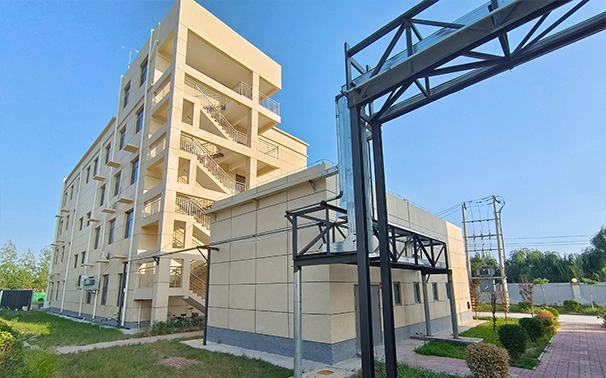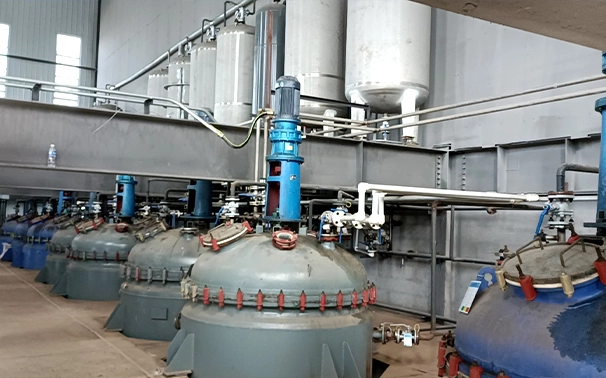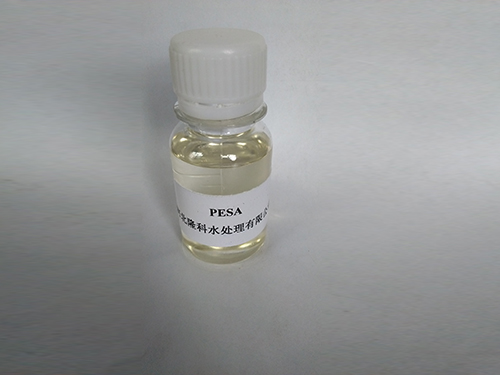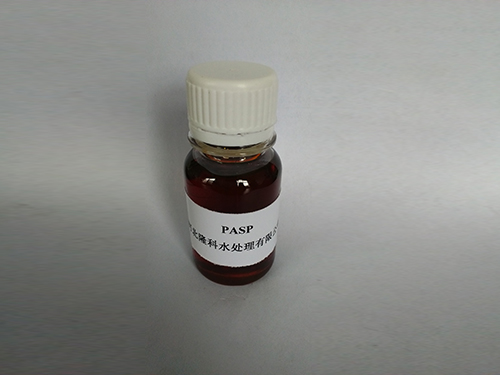Biodegradable Antiscalant and Dispersant, Products
In today’s increasingly demanding water treatment landscape, reverse osmosis (RO) antiscalant chemicals have become an essential component in maintaining operational efficiency and protecting high-value infrastructure. These specialized formulations are critical in preventing scale formation on RO membranes, which, if left unmanaged, can lead to rapid system fouling, reduced filtration performance, and costly downtime. By actively delaying the crystallization of scale-forming minerals—such as calcium carbonate, calcium sulfate, barium sulfate, and silica—antiscalant chemicals help keep the system running smoothly and reliably.
Whether referred to as an anti scale chemical, a limescale inhibitor, or more generally as an antiscalant in water treatment, the core function remains the same: to prevent mineral deposition and preserve the lifespan of vital equipment. These limescale inhibitors are now standard in municipal, industrial, and commercial water treatment systems, particularly in sectors that rely on RO units, boilers, and cooling towers. When applied correctly, even small doses can deliver remarkable results by ensuring consistent pressure, optimized flow rates, and extended membrane service life. In RO plant operations, the use of antiscalant chemical is not just an add-on—it’s a necessity. Without it, the concentration of dissolved solids during filtration can easily exceed saturation limits, triggering scaling that is difficult to remove. This buildup doesn’t just affect membrane integrity—it increases energy consumption, leads to frequent cleaning cycles, and significantly shortens system lifespan.
Hebei Longke Water Treatment Co., Ltd., a recognized name among antiscalant manufacturers, specializes in developing customized antiscalant chemical formulations tailored to a client’s specific water chemistry and operational setup. Longke’s RO antiscalant products are engineered through extensive research and backed by practical field data, ensuring that each formula is effective under a variety of conditions. Whether treating seawater, brackish water, or industrial process water, their solutions address unique scaling risks with precision. Their approach combines advanced product engineering with a commitment to cost-efficiency, enabling clients to reduce operational costs while safeguarding their systems. With a deep understanding of scaling potential, membrane sensitivity, and system variation, Longke continues to set a high standard in the water treatment chemical industry. For anyone seeking dependable, long-term performance in RO operations or boiler systems, partnering with experienced antiscalant manufacturers like Longke is a smart investment in the future of your water infrastructure.
-
CAS No.: 51274-37-4;109578-44-1
-
CAS No. 181828-06-8,35608-40-6
What Are Antiscalant Chemicals in Reverse Osmosis?
RO antiscalants are specialized chemical agents added before water enters a reverse osmosis (RO) membrane system. Their main role is to inhibit the formation of mineral scale—hard, stubborn deposits like calcium carbonate or sulfate—that can accumulate on delicate membrane surfaces. These scales, if not properly managed, can drastically reduce membrane performance, lower water output, and eventually cause costly system failures. That’s why antiscalant chemicals are considered essential components in maintaining the longevity and efficiency of RO systems.
The reverse osmosis process works by forcing water through semi-permeable membranes to remove salts, minerals, and impurities. However, without the proper use of anti-scale chemical solutions, dissolved minerals can crystallize and form solid deposits on the membrane surface. This fouling reduces membrane permeability, increases energy consumption, and demands more frequent cleanings. By introducing the correct RO antiscalant upstream, operators can delay or entirely prevent the precipitation of minerals. This results in longer membrane life, fewer chemical cleanings, and reduced maintenance costs. In industries where water purity is critical—such as pharmaceutical manufacturing, food processing, and desalination plants—RO antiscalants are indispensable. They not only protect equipment but also help maintain consistent water quality and operational reliability. From ultrapure water systems to industrial-scale desalination, these chemicals provide a line of defense that safeguards both product quality and infrastructure investment. In addition to scale prevention, many antiscalant chemical formulations act as dispersant agents, stabilizing suspended solids in the water. This prevents fine particles from agglomerating and clogging downstream filters or membranes. These particles are then efficiently removed via filtration or blowdown, minimizing the need for manual cleaning. When used in high-pressure boiler systems, the same chemistry can enhance thermal conductivity by up to 40% over untreated water, significantly improving energy efficiency.
Longke’s laboratory testing—including static and dynamic simulation analyses—has demonstrated impressive results in real-world applications. Maintenance intervals were extended by up to 60% thanks to reduced scaling and fouling. Our polymeric dispersant-based antiscalants are especially well-suited for power plants, petrochemical boilers, cooling loops in data centers, and other heavy-duty industrial environments. What’s more, these antiscalant chemicals are formulated to be non-toxic, low-foaming, and effective across a wide pH range (7–12), making them safe and practical for use in a broad array of industrial water treatment systems. For any operation relying on RO technology, choosing the right antiscalant chemical is not just beneficial—it’s essential for long-term performance.
How Does an Anti-Scale Chemical Differ from Standard Cleaning Agents?
While both anti-scale chemicals and standard cleaning agents play roles in managing water systems, their applications, timing, and long-term impact vary greatly. Understanding these differences is key for industries focused on optimizing performance, reducing maintenance, and extending equipment lifespan.
Cleaning agents are primarily reactive in nature. They're applied after a problem—like scaling or fouling—has already developed. At this point, mineral deposits such as calcium carbonate or magnesium silicate have adhered to surfaces, reducing heat transfer efficiency, narrowing pipe flow, and straining pumps or boilers. Removing these stubborn deposits often involves physical scrubbing, system shutdowns, or the use of strong acids and corrosive chemicals. Not only does this lead to increased labor and costly downtime, but the aggressive cleaning process itself may accelerate wear and tear, eventually shortening the life of the equipment.
In contrast, an anti-scale chemical—often referred to as a limescale inhibitor or antiscalant—works proactively. It’s added directly into the water stream during regular system operation to prevent scale from forming at all. These specialized chemicals work at the molecular level, altering the crystallization behavior of scale-forming minerals like calcium, magnesium, or barium. Rather than forming hard, adhesive crystals, the modified particles stay dispersed and suspended in the water. This process prevents them from settling and accumulating on internal surfaces of pipes, membranes, or heat exchangers.
Because anti-scale chemicals are part of the ongoing water treatment process, they eliminate the need for frequent shutdowns or emergency maintenance. They also support sustainable water management by reducing the use of harsh cleaning chemicals and conserving energy that would otherwise be lost due to scaling. This continuous protection is particularly critical in sectors like power generation, food processing, or desalination, where equipment must run non-stop and system interruptions are costly. For companies that prioritize efficiency, environmental responsibility, and long-term cost control, switching to anti-scale chemical treatments is a smart investment. Rather than constantly reacting to problems with traditional cleaning agents, these industries can stay ahead of scaling issues, improve system reliability, and enhance water processing performance. As regulatory standards tighten and operational demands increase, choosing the right preventative strategy is no longer optional—it’s essential.
Why Is the Use of Antiscalant in Water Treatment Critical in Industrial Settings?
In industrial environments where water systems are integral to daily operations, the need for effective water treatment cannot be overstated. Facilities such as power plants, textile factories, food processing units, and desalination plants often rely on continuous water flow to maintain optimal performance. These operations typically handle large volumes of water with fluctuating quality, making them especially vulnerable to scale formation. This is where the use of antiscalant in water treatment becomes absolutely essential.
Scale—primarily composed of calcium carbonate, calcium sulfate, and other mineral salts—can form rapidly in pipelines, heat exchangers, reverse osmosis (RO) membranes, and boilers when untreated hard water is in use. If left unchecked, these deposits reduce flow efficiency, impair heat exchange, and increase system pressure. Over time, the accumulation can lead to overheating, expensive equipment failure, or complete shutdowns. The use of anti scale chemicals helps to prevent these issues by interfering with the crystallization process of scale-forming ions, keeping them suspended in solution and unable to deposit on equipment surfaces. This preventative approach is particularly valuable in industries where water is reused or recycled, such as in cooling towers, industrial laundries, or water-intensive manufacturing processes. By incorporating limescale inhibitors, companies extend the operating lifespan of critical systems, minimize unscheduled downtime, and significantly reduce maintenance requirements. The impact on energy efficiency is also notable, as clean surfaces allow for optimal heat transfer, leading to lower operational costs. Beyond performance and maintenance, the application of antiscalant chemicals supports sustainability goals. When scale is prevented, there's less need for frequent chemical cleaning cycles or acid flushing, both of which can generate hazardous waste. This reduction in chemical usage lowers the facility’s overall environmental footprint and aligns with increasingly strict environmental regulations and green certification standards.
Partnering with experienced antiscalant manufacturers also adds value. Professional suppliers often provide tailored dosing equipment, water analysis services, and technical guidance, ensuring the right formulation is used based on system design and local water chemistry. This customized support maximizes protection and ensures regulatory compliance. So, failing to use good chemistry antiscalant treatments can result in far greater costs in the long run—not just in terms of repairs, but also productivity losses and increased energy bills. For any industrial operation that relies on water, investing in proper antiscalant water treatment is not just advisable—it’s critical.
Which Is Better: Limescale Inhibitor or Water Softener?
When it comes to protecting your plumbing systems and appliances from the damaging effects of hard water, both limescale inhibitors and water softeners offer viable solutions—but which is better? While traditional water softeners work by replacing calcium and magnesium ions with sodium, many users today prefer a more modern, environmentally friendly option. That’s where limescale inhibitors come into play. These innovative solutions work by altering the crystalline structure of minerals in hard water, preventing them from depositing as scale. Rather than removing beneficial minerals, anti scale chemicals keep them suspended in the water, allowing them to pass harmlessly through your system. This method not only preserves water quality and taste but also avoids adding excess sodium—making it ideal for drinking water applications and RO systems.
The use of antiscalant in water treatment has grown rapidly in both residential and industrial sectors due to its convenience, efficiency, and cost-effectiveness. Unlike bulky water softeners, limescale inhibitors require little to no maintenance, installation is quick, and they work immediately upon contact with water. They are especially useful in protecting boilers, heaters, washing machines, and piping systems from scale build-up, prolonging equipment life and improving energy efficiency. For those with limited space or who want to avoid salt-based systems, hard water inhibitors are a game-changing alternative that provides reliable protection without altering water composition.
At Longke, we specialize in supplying high-quality RO antiscalant chemical products and are recognized as trusted antiscalant manufacturers in the scale inhibitor industry. Our formulas are engineered for optimal performance in both domestic and industrial water systems. Designed with long-term results in mind, our limescale inhibitors offer a smart, eco-conscious solution for anyone dealing with hard water challenges. Whether you are operating a commercial RO system or simply want better water for your home appliances, our limescale inhibitor products deliver unmatched protection and peace of mind. If you're ready to shift from traditional softening methods to a more efficient and sustainable approach, it’s time to experience the benefits of Longke’s advanced limescale control solutions. Cleaner pipes, lower energy bills, and better water—starting with just one smart choice.
What Should You Look for When Choosing Antiscalant Manufacturers?
When selecting antiscalant manufacturers, you're investing in the long-term efficiency and protection of your water systems. A top choice should be one that not only offers high-quality antiscalant chemical formulations but also has a robust technical backbone to support your projects—from reverse osmosis (RO) plants to industrial boilers. Longke Water Treatment Co., Ltd. checks all the right boxes: a well-equipped chemical analysis room, advanced instrument lab, and capabilities for routine testing, static screening of cooling water, and dynamic simulation experiments. This type of in‑house testing ensures consistency and reliability in every batch of product, making them trustworthy RO antiscalant chemical suppliers. In addition, their location—conveniently positioned near major transport routes in Hebei province—makes logistics smoother, a subtle yet crucial factor when sourcing antiscalant suppliers.
Longke's product experience in polyaspartic acid, polyepoxysuccinic acid, and other phosphonate- and polycarboxylate-based chemistries reinforces their position as standout antiscalant manufacturers. These advanced chemistries function as powerful hard water inhibitors, preventing scale by disrupting scale-forming crystal growth. Because Longke specializes in both formulations and technical support, clients gain more than a mere product—they receive engineering partnership. Their portfolio includes phosphonate antiscalants, biodegradable dispersants, corrosion and scale inhibitor, and wastewater flocculants. This versatility proves essential in tailoring solutions for diverse sectors like power plants, chemical factories, and boiler systems.
Choosing Longke means opting for expert antiscalant suppliers whose credibility is rooted in both lab capabilities and market reach—their products are used across 18 provinces in China and exported globally. Their commitment to quality and customer service is clear from their distributed sales inquiries and responsive support systems. If you're searching for a supplier capable of delivering top-tier antiscalant chemical solutions—ones engineered with polyaspartic acid or polyepoxysuccinic acid and backed by thorough testing and real-world success—Longke is a strong candidate. Their blend of scientific rigor, chemical variety, and industry experience makes them a compelling choice for anyone needing effective, reliable antiscale protection.
-
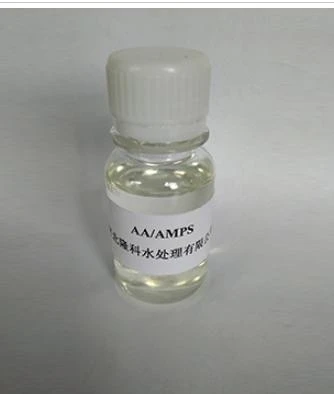 Understanding Polycarboxylic Acids: Properties, Applications, and Future PotentialPolycarboxylic acids are a versatile group of polymers widely used in water treatment, cleaning products, concrete admixtures, textiles, and even sustainable materials.magbasa pa
Understanding Polycarboxylic Acids: Properties, Applications, and Future PotentialPolycarboxylic acids are a versatile group of polymers widely used in water treatment, cleaning products, concrete admixtures, textiles, and even sustainable materials.magbasa pa -
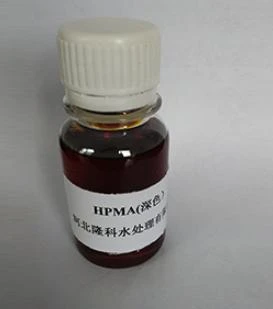 Scale Inhibitor Explained: How to Protect Your System from Limescale and Hard Water DamageIn water systems—from industrial boilers and cooling towers to household appliances—scale is a persistent enemy.magbasa pa
Scale Inhibitor Explained: How to Protect Your System from Limescale and Hard Water DamageIn water systems—from industrial boilers and cooling towers to household appliances—scale is a persistent enemy.magbasa pa -
 Scale and Corrosion Inhibitors: Essential Chemicals for Industrial Water System ProtectionIn industrial water systems—cooling towers, boilers, heat exchangers, pipelines, and RO systems—two silent threats can cause serious damage over time: scale formation and corrosion.magbasa pa
Scale and Corrosion Inhibitors: Essential Chemicals for Industrial Water System ProtectionIn industrial water systems—cooling towers, boilers, heat exchangers, pipelines, and RO systems—two silent threats can cause serious damage over time: scale formation and corrosion.magbasa pa -
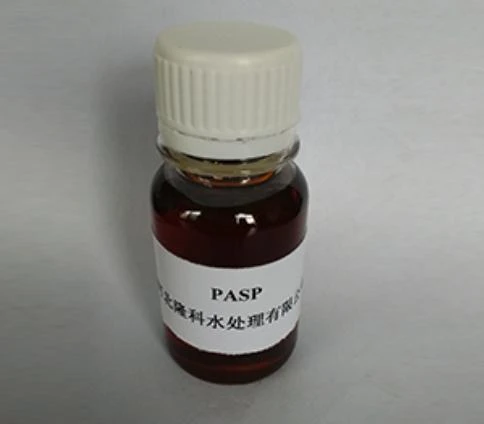 Polyaspartic Acid: A Biodegradable Polymer for Sustainable ChemistryAs industries move toward more sustainable materials, polyaspartic acid (PASP) is gaining traction across sectors—from water treatment and agriculture to coatings and biomedical applications.magbasa pa
Polyaspartic Acid: A Biodegradable Polymer for Sustainable ChemistryAs industries move toward more sustainable materials, polyaspartic acid (PASP) is gaining traction across sectors—from water treatment and agriculture to coatings and biomedical applications.magbasa pa







